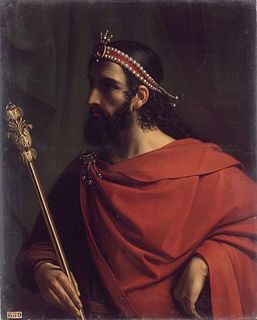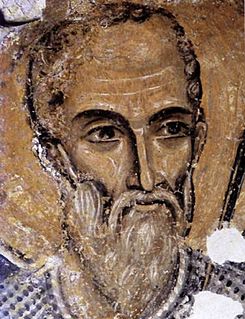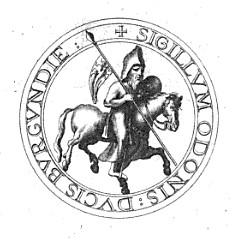
Alfonso III, called the Liberal or the Free, was the king of Aragon and Valencia, count of Roussillon, Cerdanya and Barcelona from 1285. He conquered the Kingdom of Majorca between his succession and 1287.

Year 475 (CDLXXV) was a common year starting on Wednesday of the Julian calendar. At the time, it was known as the Year of the Consulship of Zeno without colleague. The denomination 475 for this year has been used since the early medieval period, when the Anno Domini calendar era became the prevalent method in Europe for naming years.

Year 567 (DLXVII) was a common year starting on Saturday of the Julian calendar. The denomination 567 for this year has been used since the early medieval period, when the Anno Domini calendar era became the prevalent method in Europe for naming years.

Year 1259 (MCCLIX) was a common year starting on Wednesday of the Julian calendar.

Taksony was the Grand Prince of the Hungarians after their catastrophic defeat in the 955 Battle of Lechfeld. In his youth he had participated in plundering raids in Western Europe, but during his reign the Hungarians only targeted the Byzantine Empire. The Gesta Hungarorum recounts that significant Muslim and Pecheneg groups settled in Hungary under Taksony.

Aistulf was the Duke of Friuli from 744, King of the Lombards from 749, and Duke of Spoleto from 751. His reign was characterized by ruthless and ambitious efforts to conquer Roman territory to the extent that in the Liber Pontificalis, he is described as a "shameless" Lombard given to "pernicious savagery" and cruelty.
Rosamond Deborah McKitterick is an English medieval historian. She is an authority on the Frankish kingdoms in the eighth and ninth centuries AD, who uses palaeographical and manuscript studies to illuminate aspects of the political, cultural, intellectual, religious, and social history of the Early Middle Ages. From 1999 until 2016 she was Professor of Medieval History and Director of Research at the University of Cambridge. She is a Fellow of Sidney Sussex College and Professor Emerita of Medieval History in the University of Cambridge.
Hugh the Black was Duke of Burgundy from 923 until his death in 952. He was a Bosonid through his father, who was the younger brother of Boso of Provence.

Odo I, also known as Eudes, surnamed Borel and called the Red, was duke of Burgundy between 1079 and 1102. Odo was the second son of Henry of Burgundy and grandson of Robert I. He became the duke following the abdication of his older brother, Hugh I, who retired to become a Benedictine monk at Cluny.
Rudolph II, a member of the Elder House of Welf, was King of Burgundy from 912 until his death. He initially succeeded in Upper Burgundy and also ruled as King of Italy from 922 to 926. In 933 Rudolph acquired the Kingdom of Lower Burgundy (Provence) from King Hugh of Italy in exchange for the waiver of his claims to the Italian crown, thereby establishing the united Kingdom of Burgundy.

Reginald III, son of Stephen I and Beatrice of Lorraine, was the count of Burgundy between 1127 and 1148. Previously, he had been the count of Mâcon since his father's death in 1102, with his brother, William of Vienne.
Conrad I, called the Peaceful, a member of the Elder House of Welf, was King of Burgundy from 937 until his death.

Irbis was according to a number of Russian sources the founder of the Khazar Khaganate. The Khazars traced their origin to the Turkic Ashina clan in modern Mongolia.

Chelles Abbey was a Frankish monastery founded around 657/660 during the early medieval period. It was intended initially as a monastery for women; then its reputation for great learning grew, and with the afflux of men wishing to follow the monastic life, a parallel male community was established, creating a double monastery.

The Treaty of Soldin was signed on 13 September 1309 at Soldin (Myślibórz) by Waldemar, Margrave of Brandenburg-Stendal, and the Teutonic Order.

Theodore Mangaphas or Mankaphas was a Greek nobleman from Philadelphia, who assumed the title of Byzantine emperor twice, first during the reign of Isaac II Angelos, and secondly after the sacking of Constantinople during the Fourth Crusade.

Agriculture in Scotland in the Middle Ages includes all forms of farm production in the modern boundaries of Scotland, between the departure of the Romans from Britain in the fifth century and the establishment of the Renaissance in the early sixteenth century. Scotland has between a fifth and a sixth of the amount of the arable or good pastoral land of England and Wales, mostly located in the south and east. Heavy rainfall encouraged the spread of acidic blanket peat bog, which with wind and salt spray, made most of the western islands treeless. The existence of hills, mountains, quicksands and marshes made internal communication and agriculture difficult. Most farms had to produce a self-sufficient diet of meat, dairy products and cereals, supplemented by hunter-gathering. The early Middle Ages were a period of climate deterioration resulting in more land becoming unproductive. Farming was based around a single homestead or a small cluster of three or four homes, each probably containing a nuclear family and cattle were the most important domesticated animal.

The Cambridge Medieval History is a history of medieval Europe in eight volumes published by Cambridge University Press and Macmillan between 1911 and 1936. Publication was delayed by the First World War and changes in the editorial team.
David Edward Luscombe was a British medievalist. He was professor emeritus of medieval history at the University of Sheffield. He was elected a fellow of the British Academy in 1986. He was also a fellow of the Royal Historical Society and the Society of Antiquaries of London. He was the joint editor of volume four of The New Cambridge Medieval History.
Events during the year 1190 in Italy.













